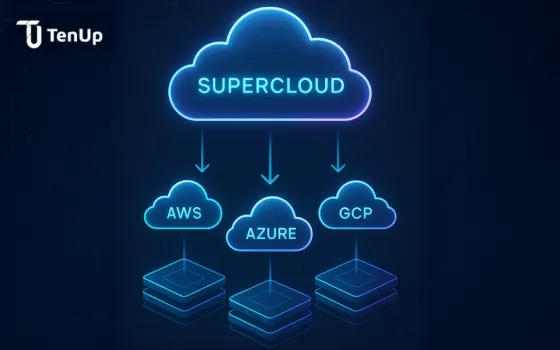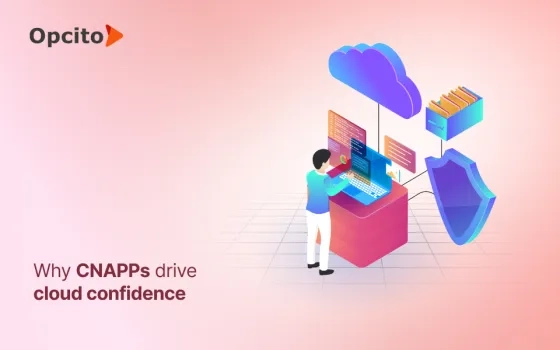Over the past few years, globally distributed computing has become a great leveler in scientific research. In the past, the requirements for high-level research, including HPC resources, storage, and communication platforms, were possible only for well-endowed organizations with sizeable capital bases. This has made many developing regions to be out of bounds for active research participation. However, with advancements in cloud computing, science research is going up across the globe, including in developing countries. Below is an insight into how the cloud is revolutionizing scientific access and in effect, making scientists from different parts of the world work and come up with brilliant innovations.
The Role of Infrastructure Regulators in Addressing a Widening Gap
There is a seemingly infinite list of issues that affect researchers in developing areas, but perhaps one of the biggest troubles is the absence of the infrastructure that is necessary for conducting scientific research in other, more developed countries. Local infrastructures such as on-site data centers or HPC platforms entail a high capital expenditure and specialized human capital, not to mention recurring technical support—resources that are scarce in many of the institutions in the region's arts.
Cloud computing presents the solution to this problem and puts scalable access to computational capabilities, storage, and various services that could only be dreamed of earlier at your fingertips. Today, platforms such as AWS, GCP, and MS Azure help the researchers to rent these resources only when required eliminating the significant initial costs of meta-theory hardware. In expounding the pay-as-you-go model, Ransome stated, "This year, universities and research institutions in the developing world can get access to the same high-end technology enjoyed by their counterparts in the developed world at a considerably cheaper price.”
Democratizing Access to High-Performance Computing
Most fields of scientific research demand HPC to compute complex mathematical solutions, solve large data sets or perform diverse simulations. For instance, genomics, climatology, and astrophysics require endorsement from these resources. Until recently, conducting research of this kind demanded the utilization of supercomputers – tools that were accessible solely to those researchers who received major funding. Today, everybody gets this kind of computational power with the cloud HPC.
This means that courtesy of cloud-based HPC, a researcher in a developing country can perform the same level of research as most institutions in the developed world. Services such as HPC on MS Azure or Big Query on Google Cloud enable scientists to process their data and work on projects that would have not been possible to undertake otherwise. This makes it possible for the developing continents to conduct research of cutting-edge technology that makes the global research community as open as possible.
Facilitating Global Collaboration
More and more the scientific process is a team effort. This is the case because projects sometimes involve professional input from various fields or receive resources from various universities or countries. The cloud engulfs such collaboration patterns for it provides platforms through which researchers can work on a project in tandem even geographically separated.
Sites like Google Workspace and Microsoft 365 mean borderless collaboration; exclusive platforms such as the Open Science Framework. This means that scholars can disseminate data, papers, and findings as well as communicate with members of the same research team from distant locations in the globe at the click of a button. For instance, the Human Cell Atlas project is an international effort to map all human cell types to help researchers worldwide collect and analyze them using cloud technology.
The implication for researchers operating in developing countries entails that such individuals can parametres themselves into global research activities and therefore be in a position to access knowledge and networks that used to be beyond their reach. Therefore, scientists in these regions are now more often getting access to international journals, conducting organized high-level conferences, and engaging in cutting-edge research.
Enabling Open Science and Data Sharing
The increase in free and open access to research data and findings associated with the open science movement is also advancing globally. Cloud has been instrumental in enabling open science to take root because it entails cheap, infinite spaces to store data.
For researchers in developing regions accessing datasets located in other parts of the world is now possible through cloud storage. Most cloud providers today have specifically aimed dedicated data sharing platforms for scientific purposes like AWS Public Datasets and Google Cloud Public Datasets that encompass everything from genomics data to satellite imageries. This means that scientists can analyze and progress from known information sets without having to pay for enormously expensive hard disk space.
Due to the openness of data sharing, cloud computing enables scientists in developing nations to solve local problems using global information. For instance, scientists exploring communicable diseases in Sub-Saharan Africa can use and analyze information across the globe improving on solutions that are devised.
Supporting Education and Training
Besides offering research tools, cloud computing greatly improves the accessibility of education for scientists and researchers in the underdeveloped world. Most cloud providers today have established educational initiatives in the form of training courses, certification programs or grants for learners and teachers.
For example, AWS Educate and Google Cloud for Education provide students and educators with free cloud accounts to learn while practicing on tools commonly used in the industry. These programs offer direct skills education in data science, machine learning, and computational biology, amongst others; a way of developing a skilled scientific human resource in the developing world.
Such access to education is essential because it helps students in developing countries to acquire knowledge and skills that will allow them to make maximum input into scientific research. These programs assist in developing the next generation of researchers who can properly use cloud technology, providing groundbreaking scientific innovations for everyone beyond wealthy institutions.
Advancing Research in Local Issues
Perhaps one of the most significant benefits of making cloud computing accessible in developing regions of the world is the ability to solve problems that are of regional concern. Scholars can leverage cloud resources to investigate and tackle real-life issues in their society, including feeding the nation, combating diseases, and combating the effects of climate change.
For instance, to engage in cloud-based data analysis, scientists in the affected areas of climate change can introduce regional-specific solutions, including augmented drought resistance of crops or efficient water usage. Likewise, by examining health data, investigators working in infectious diseases can identify patterns of outbreaks and create related intercessions.
By supporting local talent’s problem-solving of such issues through cloud computing, the latter fosters overall sustainability and growth at the grassroots level. Not only does this enhance the standard of living in these areas and add to the body of knowledge that is science across the globe since many problems faced in one area could easily be replicated somewhere else, but thus solutions developed would also serve the same in other regions.
Conclusion
Cloud computing revolutionizes scientific research by making resources accessible to researchers worldwide, especially in developing regions. Through affordable infrastructure, HPC capabilities, and data-sharing platforms, along with cloud computing certification programs, researchers gain skills to leverage these tools effectively. This access enables scientists in developing countries to contribute to global progress, fostering a more inclusive and innovative scientific community.
















